Amy Sedgwick followed the rules on Covid jabs – was that a fatal mistake?
First came the pain in her feet, then numbness. Within nine months, Amy Sedgwick was dead. Her pro-vaccination parents have detailed the ordeal that followed the Sydney student’s Covid jabs.
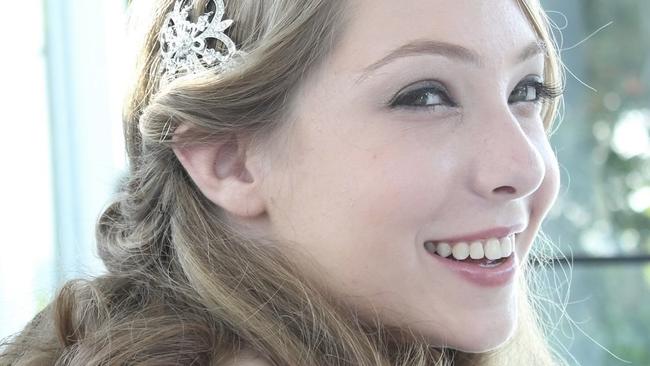
First came the pain in her feet. In the days after her Covid vaccination, Sydney student Amy Sedgwick thought the discomfort in the arches of her feet warranted a trip to the podiatrist. Her mother Sophie shakes her head as she tells this story of the beginning of the end. Sore feet seem so inconsequential compared to what came next.
That pain soon turned to mild numbness that significantly worsened after Amy’s second Pfizer shot four weeks later. Now she had aching arms and legs, and was losing feeling in her lower limbs. Six days on, the numbness was making it difficult for Amy to stand and walk. Soon she would have to be hoisted from her bed to a wheelchair. Her vision deteriorated, her hands went numb. She was twice admitted to hospital and spent two months in a rehabilitation centre. Within nine months, she was dead.
“Our beautiful, healthy, happy, 24-year-old daughter fell off a cliff after receiving her Pfizer vaccinations,’’ her staunchly pro-vaccination parents Sophie and Bruce Sedgwick told a federal parliamentary hearing.
They describe the following eight months as horrific but you can tell from talking with them that there are no words to describe Amy’s decline.
Before her first vaccination in July 2021 she was living in her own unit in Mosman on Sydney’s north shore, driving her car to Macquarie University where she was in the final months of a psychology degree.
An underlying medical condition that caused fatigue and slight problems with her co-ordination was being managed with physiotherapy. “Her life in June of 2021, at the age of 23, just prior to receiving her Covid vaccination, was wonderful,’’ they say.
Then Sophie pulls up the last video they have of Amy, eight months after she fell ill. She is taking a few steps in a walking frame with carers either side. This is progress; the numbness was subsiding and each day she could walk a little further with assistance. “We were assured she would fully recover,’’ Sophie says.
A week later, on the morning of April 2, 2022, a carer arrived at Amy’s home to help with her morning routine. She was shocked to find that Amy had died in her sleep. An autopsy failed to determine a cause of death.
Her decline, coming in lock-step with her vaccinations, might well be a terrible coincidence – people’s health can suddenly and drastically spiral. Amy’s parents accept there might never be medical certainty to prove a causal link.
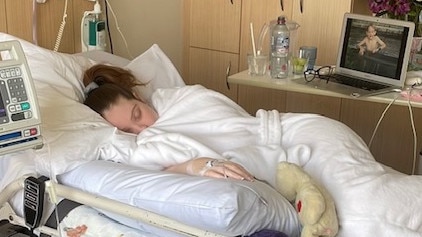
What they do know is that her treating neurologist said Amy had post-vaccination neuritis. “We asked him how did he know that the vaccination was definitely causing this. He replied, ‘Because there is no known neurological condition that would cause such a rapid deterioration in such a short period of time’,’’ they told the parliamentary inquiry.
The Weekend Australian has seen documentation from the neurologist confirming Amy developed neuropathy (nerve damage) after her Covid vaccination which had led to “significant morbidity”.
Bruce reported Amy’s condition, and its suspected link to the vaccine, to the Therapeutic Goods Administration’s adverse events database in November 2021, five months before her death. He received nothing more than a pro forma automated response.
As far as they are aware, their daughter’s decline and death has never been individually assessed by the TGA, the commonwealth authority tasked with monitoring vaccine side-effects and deaths.
In a statement to The Weekend Australian, the TGA said it was aware of the case and was awaiting an investigation by the NSW coroner as to Amy’s cause of death. “The TGA uses the medical diagnosis and legal cause of death as determined by treating doctors or coroners,” it said. “The TGA uses this information to look for potential adverse effects from vaccination requiring investigation. If new information becomes available from an investigation by a coroner or health service, the TGA will reassess.”
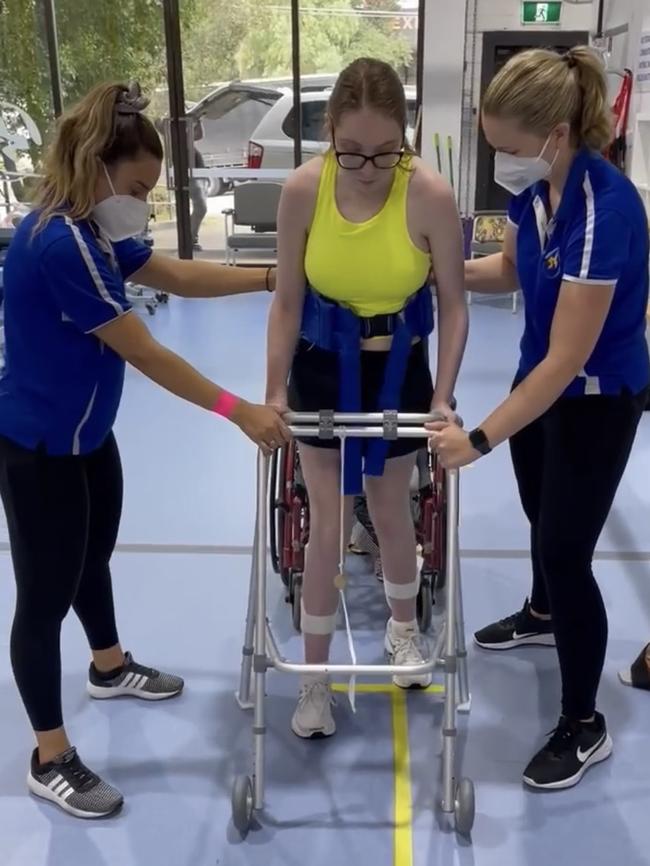
So almost a year on, Amy’s case sits with the NSW coroner’s office, which could take many more months to fully investigate her cause of death. In the meantime, her parents wonder why authorities responsible for monitoring vaccine safety aren’t more curious about Amy’s unexpected death. “Lessons must be learnt,” they say.
Caught in the crisis stage of the Covid pandemic, when no one wanted to talk about vaccine side-effects for fear of being labelled anti-vaxxers, the Sedgwicks weren’t sure where to turn. And then, earlier this year, a breakthrough. They were invited to appear at a federal parliamentary inquiry into long Covid and repeat Covid infections.
‘We need answers’
Even though Amy’s case was outside the inquiry’s terms of reference – she didn’t have long Covid because she’d never had Covid – the chair, Labor MP Mike Freelander, an experienced paediatrician from southwest Sydney, made a “captain’s pick”.
“I just thought that they hadn’t been treated that well and I thought they deserved to have their story heard,’’ Freelander says. “I can’t comment clinically, Amy wasn’t my patient, but I do think we should look at why she had such a poor outcome. Is it immunisation-based? Did she have an underlying problem … and then did the immunisation on top of that trigger a worse inflammatory response that may have led to more side-effects or complications? These are things we need to look at in great detail. It’s rare, very rare, that you see a death like this, and when you do we should be looking at this to nth degree.”
Freelander says his committee has asked for a response from the Department of Health. “And I will continue to follow that up even if it takes months, I’ll keep following it up so that they feel they have been treated respectfully and their daughter has been treated respectfully. They need to get some answers … they need to feel that our health authorities will look at this as far as they possibly can and at least make contact.”
Labor MP Michelle Ananda-Rajah, an infectious diseases specialist and general physician, also sits on the long Covid inquiry and was clearly moved by Amy’s case. She spoke of another case which she’ll never forget. “A 24-year-old woman came into a big hospital … She was lying flat in bed: ‘I can’t breathe, and I can’t move my legs.’ No one believed her. She had the AstraZeneca vaccine. I examined her. She turned out to have Guillain-Barre, and a very different outcome.’’ Guillain Barre, a neurological syndrome that can cause paralysis, is now a known rare side-effect of the AstraZeneca vaccine.
Ananda-Rajah continued: “This problem with the medical profession is a problem particularly with young, healthy people. If we can’t see an obvious problem it shuts our mind down …. Your testimony is a reminder for all of us that we need to be open minded and we need to get a lot better at consultation and listening to patients.’’
But it was another comment from Ananda-Rajah to the parliamentary hearing that has stayed with the Sedgwicks. “We know – this is my own experience – that vaccination can exacerbate autoimmune diseases; it can cause inflammation … We do relay that in our consults with patients, particularly those who have underlying conditions. That clearly didn’t happen in your case,” she said.
Following advice
Amy had an underlying condition that affected her co-ordination and caused fatigue. She’d undergone extensive genetic testing, which ruled out a range of disorders, and in the end it was decided her symptoms aligned with hereditary spastic paraplegia, which causes muscle weakness and tightness in the legs.
It required monitoring but, apart from physiotherapy, Amy didn’t need medication and lived a full life. At high school she’d completed her bronze Duke of Edinburgh, did overseas student exchange trips, volunteered at an orphanage in Cambodia. At university she studied full-time.
But after that parliamentary hearing the Sedgwicks thought back to the medical advice they’d received when they’d queried whether Amy should be vaccinated. Her condition meant she was in the earlier groups prioritised for vaccination so, yes, they were told, she should go ahead and be vaccinated as soon as possible. “We felt safe and assured, following and trusting both the government and medical advice,’’ her parents say.
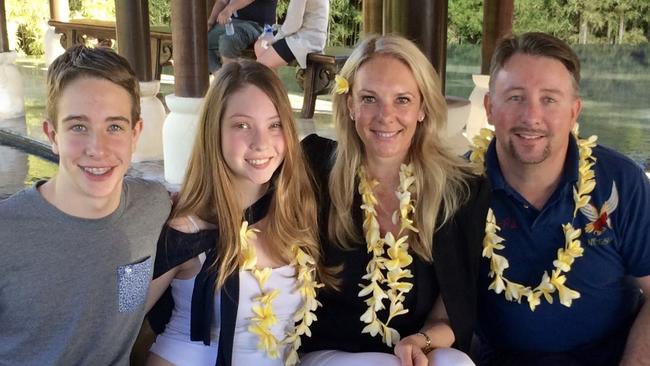
Amy was never counselled that she might be at risk from the vaccine or advised to be extra vigilant about side-effects. Her parents think back to Amy’s sore feet, the first warning sign. “She’d had that before, three years prior, so when the pins and needles and numbness came on we thought it was related to arches of her feet and would resolve itself,’’ Sophie says. “But very quickly after that second shot it went rapidly downhill. Amy went through horrific suffering.”
Raising red flags
About 65 million doses of a Covid vaccine have been administered in Australia and most people suffered no ill effects beyond a sore arm or a headache. But as with any vaccine, some people did suffer adverse events. The TGA says the deaths of 14 people aged 21–81 are likely related to a Covid vaccine.
Nick Wood, a professor in clinical vaccinology at the University of Sydney, could not comment specifically on Amy’s case but says a young person’s unexpected death should be thoroughly assessed at a local and commonwealth level.
He recently returned from a Churchill Fellowship where he looked at ways to improve the management of vaccine reactions. “One of my key findings is that long-term follow-up of rare but serious adverse reactions should be a routine part of our vaccine safety surveillance system.”
He adds that the planned Centres for Disease Control in Australia should have a dedicated immunisation safety office.
Wood says reports of side-effects from Covid vaccinations are monitored via two systems: electronic surveys sent to patients after their vaccination, and reports from clinicians or patients directly to the TGA or to their state health department, which could convene an expert panel to consider a serious case to provide more information to the TGA.
NSW Health would not comment on whether this was done in Amy’s case; if it was, Amy and her family were not informed.
A spokesman said NSW Health is notified when a serious or unexpected adverse event occurs. “NSW Health investigates these events and refers its findings to the TGA, which is responsible for assessing causality.”
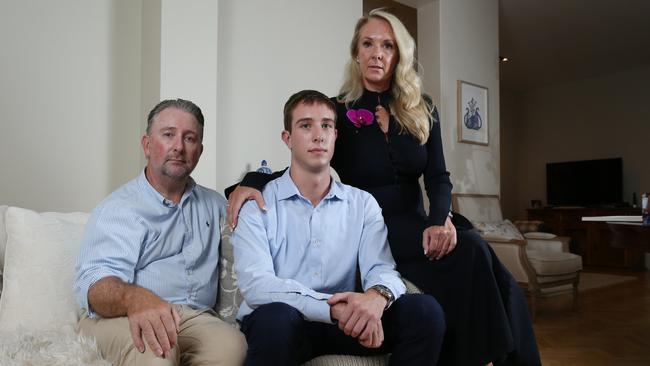
In response to follow-up questions, a spokesman for the TGA said it had not convened an expert panel to assess Amy’s case because of “insufficient information”. Presumably that means her undetermined cause of death. “All Covid-19 adverse event reports are included in ongoing analyses to identify and investigate signals that may not be apparent through review of individual cases,” the spokesman says. “While Amy’s death has not been referred to an [expert panel] we emphasise that the report of Amy’s neuritis has been and continues to be included in regular analyses to detect new safety signals.’’
The spokesman then notes that no causal link had been identified between generalised neuritis (inflamed nerves) and the Pfizer vaccine. Anecdotal figures collected by Coverse, the advocacy body representing vaccine-injured Australians, notes nerve and neurological issues are among the most common complaints self-reported by its members.
‘A voice for Amy’
Bruce and Sophie Sedgwick and Amy’s younger brother Hunter are now preparing to face the one-year anniversary of her death. They are encased with grief and feel let down. “For Amy and for us, since it started to go wrong, there’s been zero support,” Sophie says.
They’d thought there would be intense medical interest in Amy’s case, a desire to quickly determine whether it was or wasn’t related to the vaccine. “You had a 23-year-old who has had a catastrophic reaction, surely they are going to investigate that promptly and send out an alert that we’ve had this case with an unknown neurological reaction so other doctors know? Surely that’s the way this is supposed to work?” Bruce says.
They’re not alone in asking for a royal commission into the vaccine rollout and are awaiting the recommendations of the parliamentary inquiry, due next month.
Nothing can bring Amy back but lessons can be learned. “I have to be a voice for Amy,’’ her mother says. “We hope to get some acknowledgment, to make sure that safeguards are put in place so something like this can’t happen again. That’s my dream ending to this.”


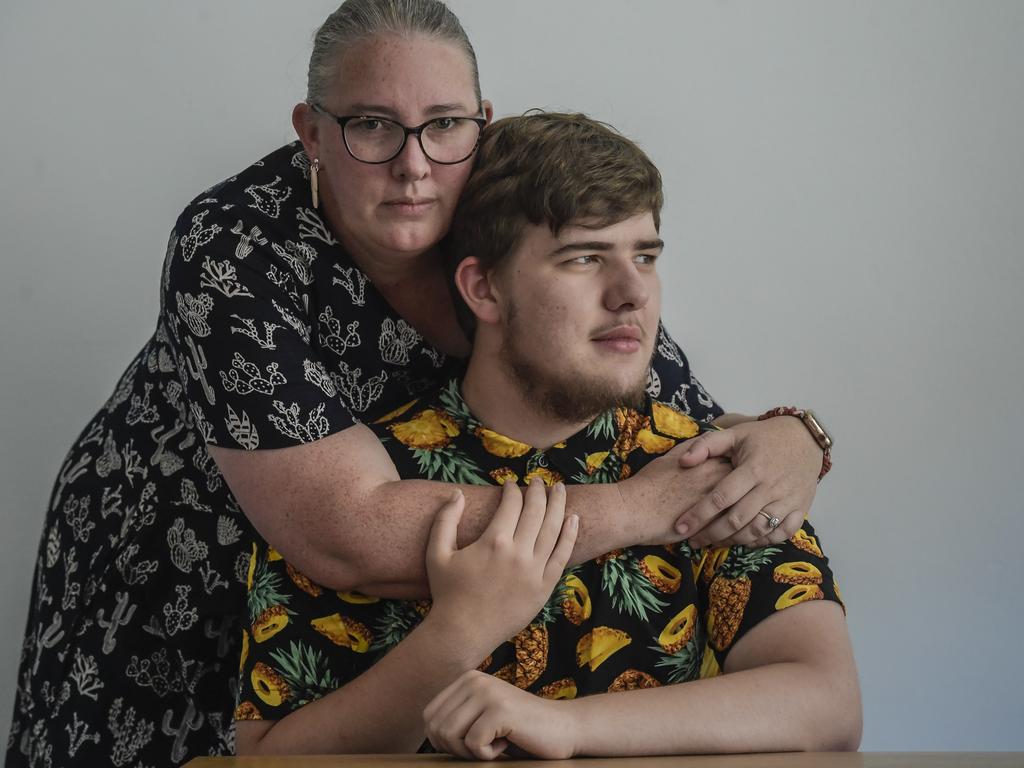
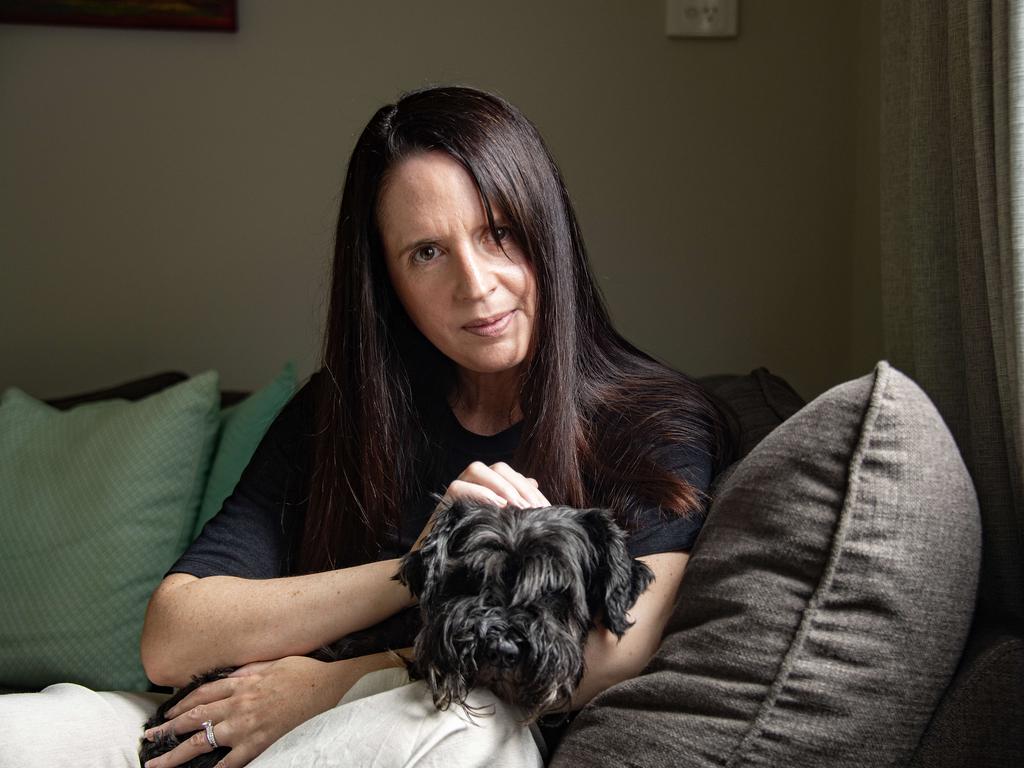


To join the conversation, please log in. Don't have an account? Register
Join the conversation, you are commenting as Logout